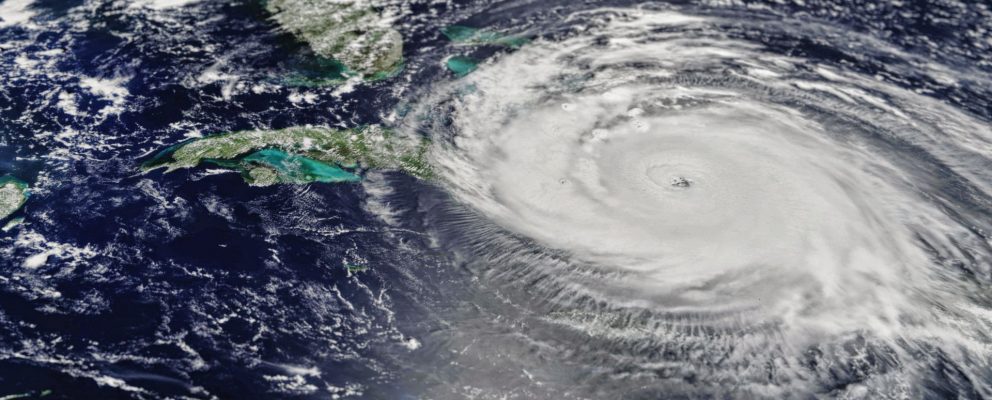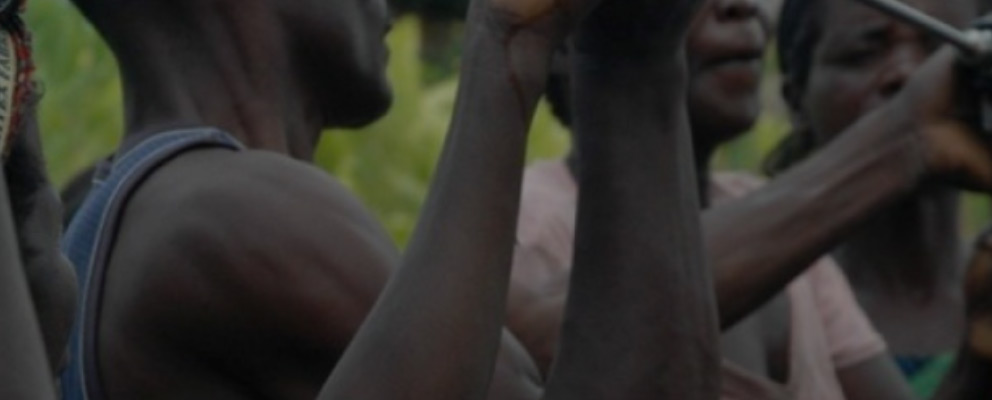
Natural disasters: Preparedness, poverty and public policy
Prateek Awasthi (@prateekawasthi) is the Director of Policy and Advocacy at Engineers Without Borders (EWB) Canada.
Hurricane Irma pummelled the Caribbean last week, leaving in its path tragic losses of life, untold destruction of homes and businesses, and devastated communities and countries. As I read about it, I did what I often do: go online to donate to the Red Cross, and encourage my friends and family to do the same. But as global temperatures rise, such natural disasters could continue to increase or become less frequent, but more intense and the more severe, weather-related events impact our lives, the more prepared we need to be.
However, investing in disaster risk reduction requires resources, and natural disasters disproportionately impact poor countries, and the poorest within countries. The Brookings Institution explains: “Within countries, it is almost always the poor and marginalized who are disproportionately affected by natural disasters. They tend to live in less safe environments and in less safe shelter. Shoddily-constructed slums are more vulnerable to earthquakes, landslides and flooding that the homes where the rich are more likely to live… Natural disasters exacerbate existing gender inequalities and pre-existing vulnerabilities.”
What’s more, the poorest countries in the world also receive a fraction of the funds they need to be well-prepared, even though every dollar spent on risk reduction can often save $3 to $15 dollars in post-disaster aid. In the aftermath of Hurricane Matthew, Time magazine reported, “The storm tore through the Caribbean, bringing torrential rain and high winds to Haiti, Cuba and the Bahamas. But despite hitting each of these countries hard, Haiti faced the greatest devastation with more than 470 killed compared to just a handful in its neighboring Caribbean countries. The key difference between countries that succeed in weathering a storm and those that struggle is preparation and poverty.”
Poverty and inequality also affects recovery.
A report by Amnesty International showed that in Haiti, five years after the earthquake, 85,000 people remained in internally displaced persons (IDP) camps, and there were many cases of forceful evictions and human rights abuses. Further, there was little to show for the $13.5 billion dollars in humanitarian aid that was raised in the immediate aftermath. International aid organizations were also either ineffective or inefficient, and recovery efforts were slowed down or reversed by a cholera epidemic (which the UN sort-of apologized for) and subsequent hurricanes, floods and storms.
Compare Haiti to Japan’s recovery from the earthquake and tsunami. While it is by no means perfect or fully completed, within five years, Japan managed to clear out the millions of tons of debris, rebuild roads and bridges in the coastal areas and permanent housing for half the people displaced.
Public policy can make a difference.
Across the world, countries are being called to invest in improved buildings and flood-prevention measures. In 2015, the Third UN World Conference on Disaster Risk Reduction in Sendai, Japan adopted a Framework that emphasises better understanding of risk, governance systems to manage risk, building resilience, as well as enhancing response and recovery. Local governments can engage citizens in preparing for natural disasters, developing response and relief plans with the participation of local communities.
A part of the success in Japan’s recovery is due to an enabling environment that facilitates partnerships with volunteers and entrepreneurs. In an inspiring story from Iwaki City, north of Tokyo in the Fukushima prefecture that was devastated in 2011, the local government teamed up with the local community and private firms to rebuild the local economy. A public-private partnership created Wonder Land, “an integrated agricultural theme park,” that produces tons of tomatoes hanging from the air, and supplies them to local restaurants.
The government also enabled public access to data on radioactivity levels, thereby restoring consumer confidence to buy fish caught in local waters. Supported by government policies, volunteers rebuilt the Fukushima Aquarium, and former coal-miners set up a Hawaiian-themed spa resort, bringing back tourism and the revenue that comes with it.
Today, our priority must be to support the survivors of Hurricane Irma and other natural disasters across the world to recover and rebuild their lives. But once immediate relief is provided, families are reunited, and homes are rebuilt, we must work to strengthen the resilience of communities and countries so that severe weather-related events do not automatically disrupt communities, cause human and economic losses and become disasters.
We can do this by redoubling our efforts to end global poverty and inequality. We can increase development aid to the poorest countries in the world so that they can invest it in building resilient infrastructure, communities and economies. And we can create enabling environments to unleash entrepreneurship and innovation. Only then do we start addressing the root causes of the suffering we are witnessing today.
EWB Canada contributes in an important way.
As Boris Martin, our CEO, shared in his reflections last week, it’s not EWB’s job to respond to disaster. We wouldn’t do that nearly as well as other groups would. But through our collective voice, we promote systems of trade, aid and global development that are fair, building a world that’s just a bit more resilient in the face of disasters like hurricane Irma.
In the coming months, the Canadian government will begin negotiations on its budget for 2018, in which we will ask for increases in official development assistance, so that the poorest countries across the world, and the most marginalized people within those countries, can escape poverty and become more resilient.
In January, Canada will launch the Development Finance Institute (DFI) (a big win for our advocacy work!), and we will make sure the DFI is set up for success, to actually support social entrepreneurs (particularly young women!), who can drive local economies to recover and thrive.
And next year, in Canada, Africa and the rest of the world, we will call on global leaders to leverage innovation and entrepreneurship for development, to build a more sustainable and inclusive world.
So, with a deep sense of responsibility, humility and acknowledgement of our privilege, let’s reaffirm our commitment and get working.
